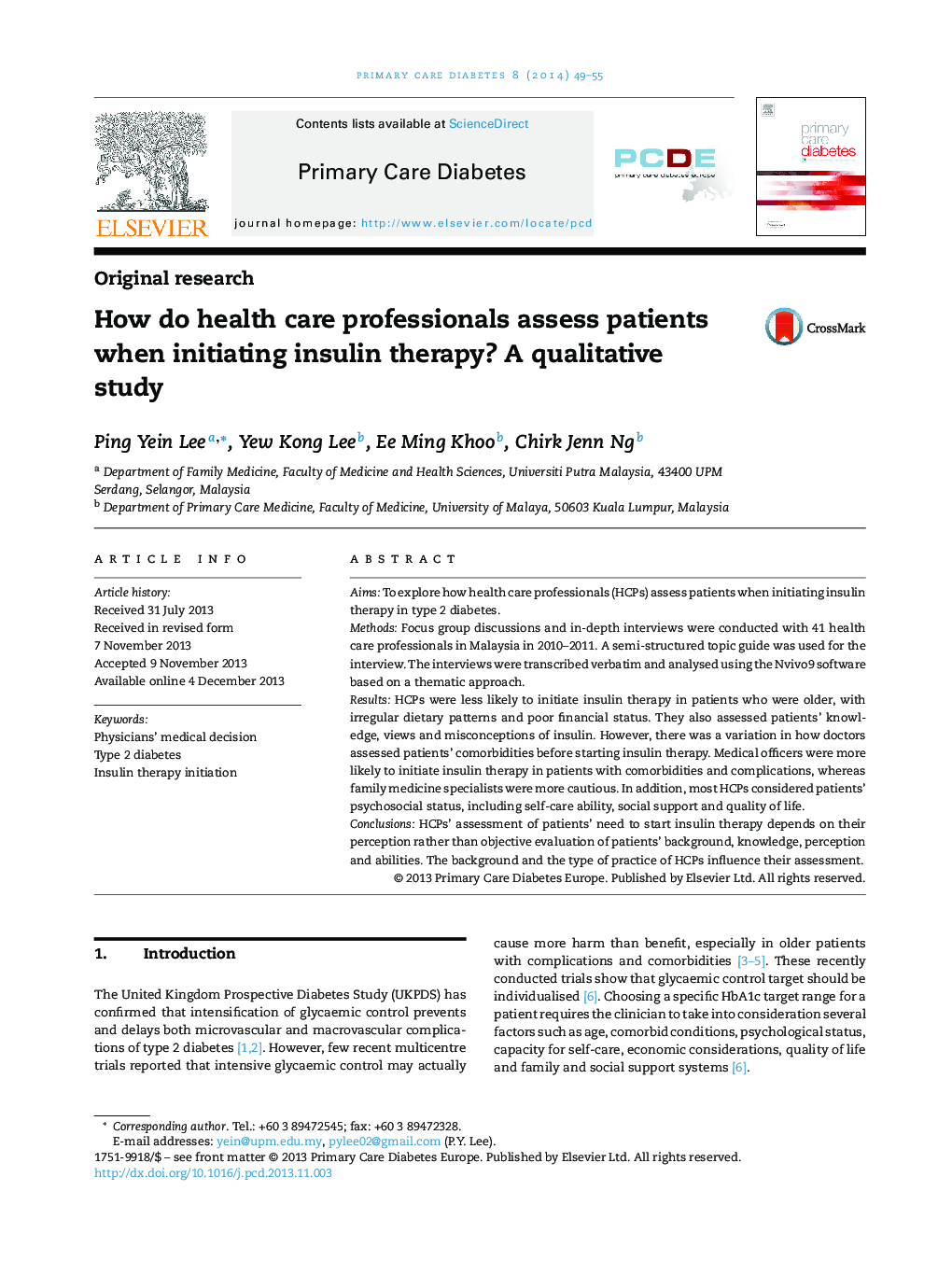| Article ID | Journal | Published Year | Pages | File Type |
|---|---|---|---|---|
| 5871135 | Primary Care Diabetes | 2014 | 7 Pages |
AimsTo explore how health care professionals (HCPs) assess patients when initiating insulin therapy in type 2 diabetes.MethodsFocus group discussions and in-depth interviews were conducted with 41 health care professionals in Malaysia in 2010-2011. A semi-structured topic guide was used for the interview. The interviews were transcribed verbatim and analysed using the Nvivo9 software based on a thematic approach.ResultsHCPs were less likely to initiate insulin therapy in patients who were older, with irregular dietary patterns and poor financial status. They also assessed patients' knowledge, views and misconceptions of insulin. However, there was a variation in how doctors assessed patients' comorbidities before starting insulin therapy. Medical officers were more likely to initiate insulin therapy in patients with comorbidities and complications, whereas family medicine specialists were more cautious. In addition, most HCPs considered patients' psychosocial status, including self-care ability, social support and quality of life.ConclusionsHCPs' assessment of patients' need to start insulin therapy depends on their perception rather than objective evaluation of patients' background, knowledge, perception and abilities. The background and the type of practice of HCPs influence their assessment.
